
Senior physics writer Emily Conover joined Science News in 2016. She has a Ph.D. in physics from the University of Chicago, where she studied the weird ways of neutrinos, tiny elementary particles that can zip straight through the Earth. She got her first taste of science writing as a AAAS Mass Media Fellow for the Milwaukee Journal Sentinel. She has previously written for Science Magazine and the American Physical Society. She is a two-time winner of the D.C. Science Writers’ Association Newsbrief award, and a winner of the Acoustical Society of America’s Science Communication Award.

Trustworthy journalism comes at a price.
Scientists and journalists share a core belief in questioning, observing and verifying to reach the truth. Science News reports on crucial research and discovery across science disciplines. We need your financial support to make it happen – every contribution makes a difference.
All Stories by Emily Conover
-
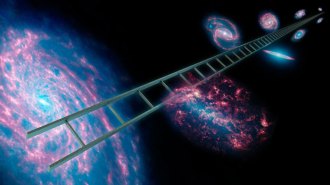 Cosmology
CosmologyDebate over the universe’s expansion rate may unravel physics. Is it a crisis?
Measurements of the Hubble constant don’t line up. Scientists debate what that means.
-
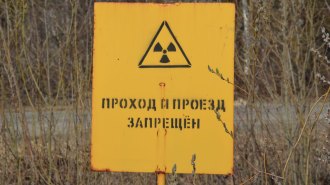 Particle Physics
Particle PhysicsHow a 2017 radioactive plume may be tied to Russia and nixed neutrino research
A botched attempt at producing radioactive material needed for a neutrino experiment may have released ruthenium-106 to the atmosphere in 2017.
-
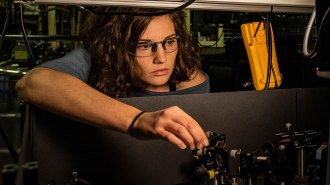 Physics
PhysicsIncreased control over ions’ motions may help improve quantum computers
Scientists precisely manipulated the ion’s oscillations and energy levels, a key step toward building better quantum computers.
-
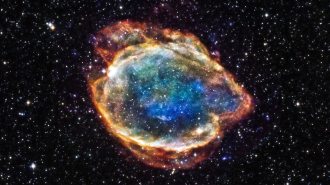 Cosmology
CosmologyScientists still can’t agree on the universe’s expansion rate
A mismatch in measurements of how fast the universe is expanding might not be real, a study hints.
-
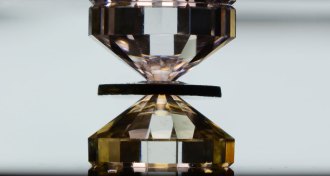 Materials Science
Materials ScienceLatest claim of turning hydrogen into a metal may be the most solid yet
If true, the study would complete a decades-long quest to find the elusive material. But such claims have been made prematurely many times before.
-
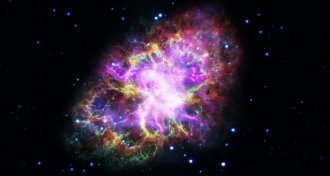 Astronomy
AstronomyThe highest-energy photons ever seen hail from the Crab Nebula
An experiment in Tibet spotted photons with over 100 trillion electron volts of energy.
-
 Life
Life‘Sneezing’ plants may spread pathogens to their neighbors
A “surface tension catapult” can fling dewdrops carrying fungal spores from water-repellent leaves.
-
 Particle Physics
Particle PhysicsDiamond detectors could aid the search for dark matter
Elusive dark matter particles could be spotted when they slam into electrons or atomic nuclei within diamond, scientists say.
-
 Particle Physics
Particle PhysicsPhysicists have finally figured out how pentaquarks are built
The particles are made of up two smaller particles, stuck together like atoms in a molecule.
-
 Physics
PhysicsThis tabletop device turns the quantum definition of a kilogram into a real mass
The mini Kibble balance will measure 10 grams to an accuracy of a few ten-thousandths of a percent.
-
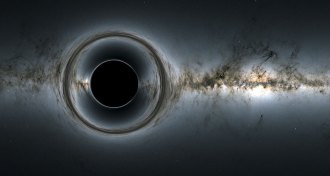 Physics
PhysicsIn a first, scientists took the temperature of a sonic black hole
A lab-made black hole that traps sound, not light, emits radiation at a certain temperature, as Stephen Hawking first predicted.
-
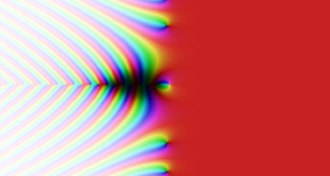 Math
MathMathematicians report possible progress on proving the Riemann hypothesis
A new study advances one strategy in the quest to solve the notoriously difficult problem, which is still stumping researchers after 160 years.